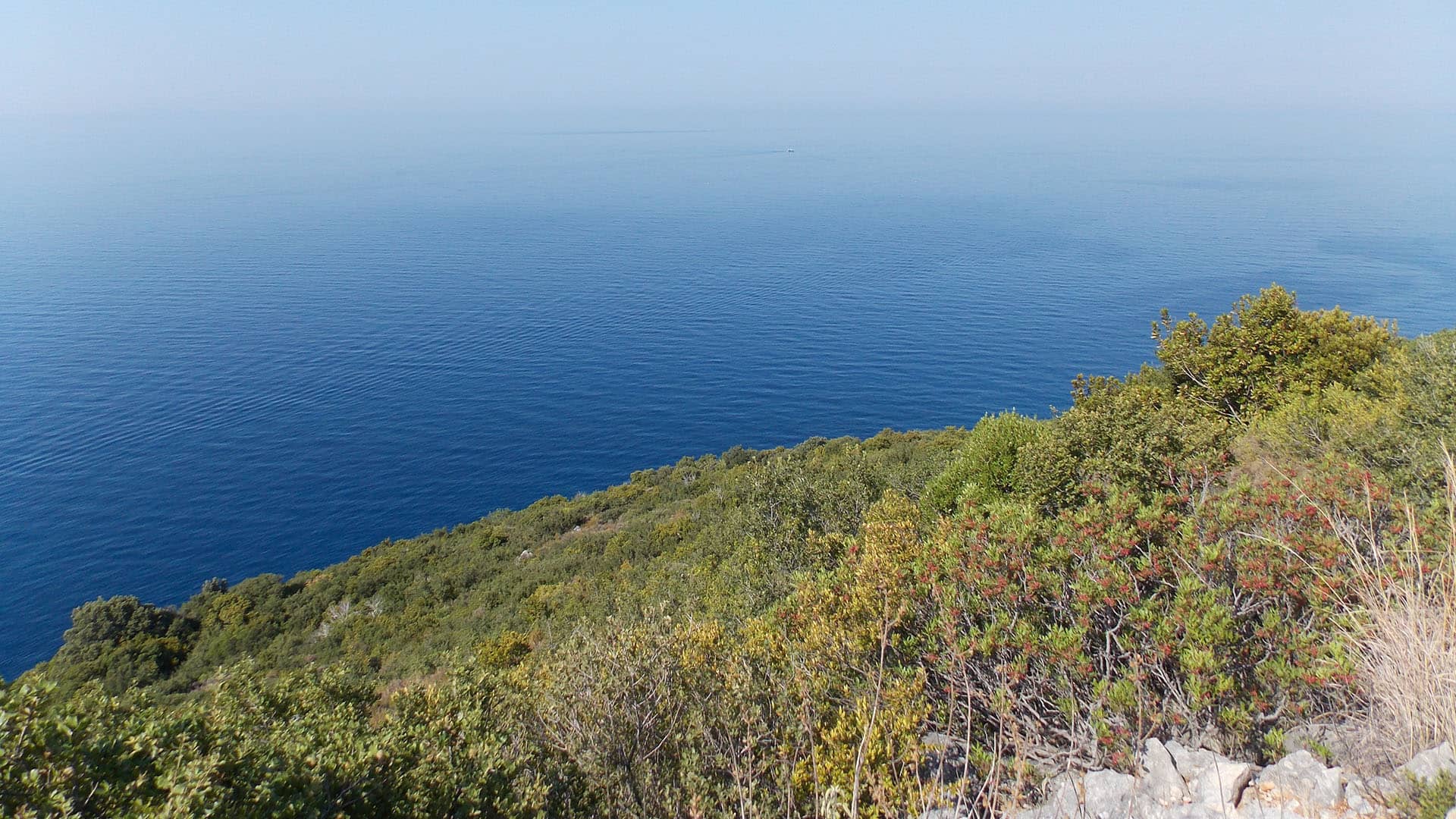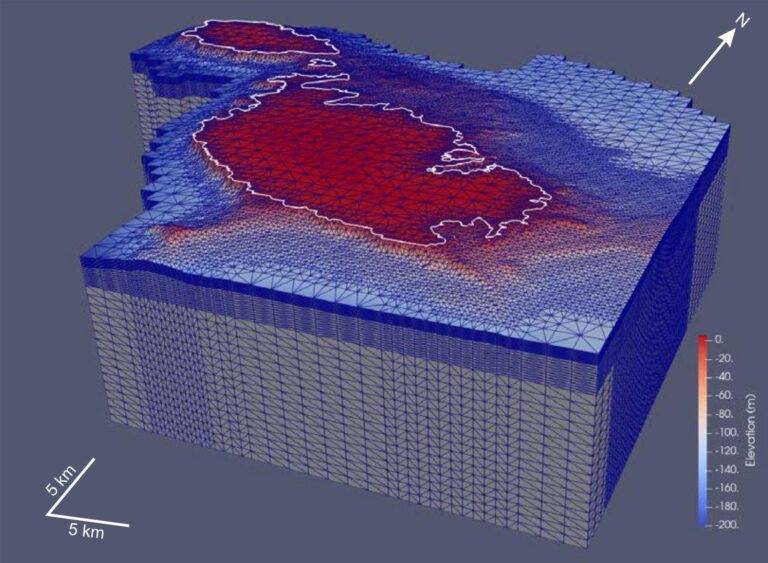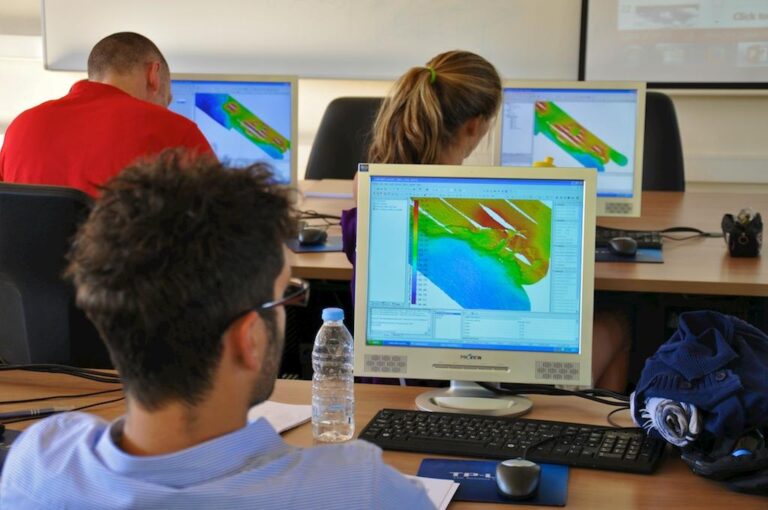WG1: Assessment
WG1 will be dedicated to compiling a new open-access comprehensive database from existing data and literature on OFG bodies in European waters, which will go beyond the current fragmented nature of OFG knowledge. From this database, containing existing onshore and offshore geological, geophysical, and hydrogeological data, a 3D geological model will be generated in order to develop and apply numerical models, based on the best existing offshore and onshore geoscientific information. Such will provide best estimates of where OFG is expected to occur and in what quantities.
Tasks
Task 1
Compile a database of known OFG bodies and their characteristics in waters of COST Member Countries from published literature and data sets (e.g., borehole logs, geophysical data).
Task 2
Compile a database of available geological and geophysical data from margins of COST Member Countries from published literature and data sets (e.g., EMODnet, SeaDataNet).
Task 3
Generate 3D geological models of selected margins (based on good data coverage) by integrating data from 1.2 with available onshore geological and hydrogeological data (e.g., Gleeson et al., 2014; Hartmann and Moosdorf, 2012; Huscroft et al., 2018; Zamrsky et al., 2018).
Task 4
Run transient hydrogeological simulations over at least two glacial cycles, calibrated with data from 1.1, to predict the occurrence, salinity, and volume of OFG at the selected margins.
Activities
A workshop will establish a common workflow for tasks 1.1-1.4, and STSMs will carry out tasks 1.1-1.4.
WG2: Innovative technologies
In WG2 we will review existing instrumentations, methods and approaches including geophysics, geochemistry, geology, numerical modelling, that have been so far used to study OFG systems around the globe. We will carefully analyse the Pro’s and Con’s of these studies to identify any missing parts and links. This will give us an overview of where we have to reach out to new developments and knowledge. The enveloping goal will be to develop best practice strategies for OFG exploration and provide the community with hands-on guidelines for the data analysis and interpretation, based on tools and expertise we have available within the OFF-SOURCE community.
Tasks
Task 1
Synthesise and critically analyse available instruments and approaches for OFG mapping and characterisation (e.g., geophysics, geochemistry, well logging, numerical modelling, integrated interpretation and joint inversion of seismic reflection, and electromagnetic data).
Task 2
Compile standard guidelines for the operation of the instruments, processing of the data they generate, and their interpretation.
Task 3
Identify avenues for future method development and propose new instrument designs.
Activities
A workshop will be organised for all the WG2 tasks.
WG3: Utilisation

The main goals of WG3 are to identify water resource applications where OFG would be potentially useful or feasible by addressing the technological and economic feasibility gaps that currently exist. Effective utilisation strategy necessitates involvement of industry partners and policy makers to facilitate broad scale application. Therefore, another goal of this working group is network expansion to include non-academic participants such as civil engineers, water treatment specialists, and economists specialising in the water sector. In pursuit of this, the group will conduct a workshop and other forms of outreach or dissemination to engage scientists, policy makers, and other stakeholders on the issue of OFG utilisation.
The group will aim to provide solutions to the open questions around OFG utilisation that can be addressed within the scope of STSMs such as:
- Testing the hydrological and economic feasibility of existing OFG sites within COST member states.
- numerical modelling of extraction and exploitation scenarios.
- Lab scale experiments for miscibility of new phases
- Determining the infrastructure needed – Do we use existing infrastructure? Is there a need for new technological development?
- Environmental monitoring and biological effects? What are the potential impacts of OFG exploitation?
Tasks
Task 1
Bring together organisations involved in water, hydrocarbon exploration, offshore engineering, and water treatment and management, to propose a range of cost-effective infrastructure solutions for OFG exploitation.
Task 2
Compile a database of existing hydrocarbon-related (e.g. wells, platforms) and water treatment infrastructure in COST Member Countries.
Task 3
Identify the most appropriate sites in COST Member Countries for OFG exploitation, based on the occurrence of OFG, water scarcity, and hydrocarbon-related and water treatment infrastructure.
Task 4
Test the hydrogeological feasibility of the sites identified in 3.3 using models developed in 1.4 and carry out a cost-benefit analysis of the strategies proposed in 3.1.
Activities
A workshop will help achieve tasks 3.1, and STSMs will carry out tasks 3.2-3.4.
- A technical report that outlines:
- the existing technology and infrastructure that can facilitate OFG utilisation, such as existing desalination plants, energy efficiency of water treatment and brine disposal.
- research gaps and technological advances needed to expand and improve efficacy of OFG utilisation
- case study of a specific site
- A map and associated database of sites across all COST member states where OFG resources can be utilised
- A scientific publication on numerical modelling of extraction and exploitation scenarios
WG4: Challenges

The goal of the WG4 is to identify the challenges of OFG exploration and exploitation and propose solutions that allow us to advance with the use of these resources in a sustainable and responsible manner.
This WG will compile a comprehensive database of the economic and technical viability, and sustainability of OFG, followed by a review of the regulation for the use of natural a-biotic offshore resources for their application to OFG resources.
A list of recommendations for policies, action plans, protocols, and legislation for OFG exploitation at the local to international levels will be the outcome of this group. It will also produce guidelines and recommendations for best practices for the utilisation of OFG resources.
Tasks
Task 1
Identify the environmental impacts of OFG pumping, transportation, treatment and distribution foreseen by stakeholders via a questionnaire.
Task 2
Using the geological and hydrogeological models from 1.3 and 1.4, quantify the impact of pumping (using different well locations, configurations, and pumping rates) and climate change (rising sea-level, varying precipitation, and temperature) on OFG at the test sites selected in 3.3.
Task 3
Based on the outcomes of 4.1 and 4.2, make recommendations for best practices for the utilisation of OFG resources.
Task 4
Review existing policy for onshore aquifers and seabed resources, and compile a list of recommendations for policies, action plans, protocols, and legislation for OFG exploitation at the local to international levels.
Activities
A questionnaire will be prepared for task 4.1; STSMs will be launched for tasks 4.2-4.3, and a workshop for task 4.4.
WG5: Training and dissemination
In Working Group 5 (WG5), the aim is to attract attention and raise awareness about the importance of OFG from scientists, policy makers, industrial partners, and the general public. To this aim, we will arrange dissemination activities including, but not limited to, presentations during international conferences as well as workshops and training schools for parties that are interested in the subject. We intend to actively engage other non-scientist parties through these dissemination activities to establish connections for future assessment, characterization, and utilisation of OFG.
Tasks
Task 1
Organise three one weeklong Training Schools together with WG2.
Task 2
Communication of Action activities and deliverables.
Activities
Training Schools, various dissemination activities.


